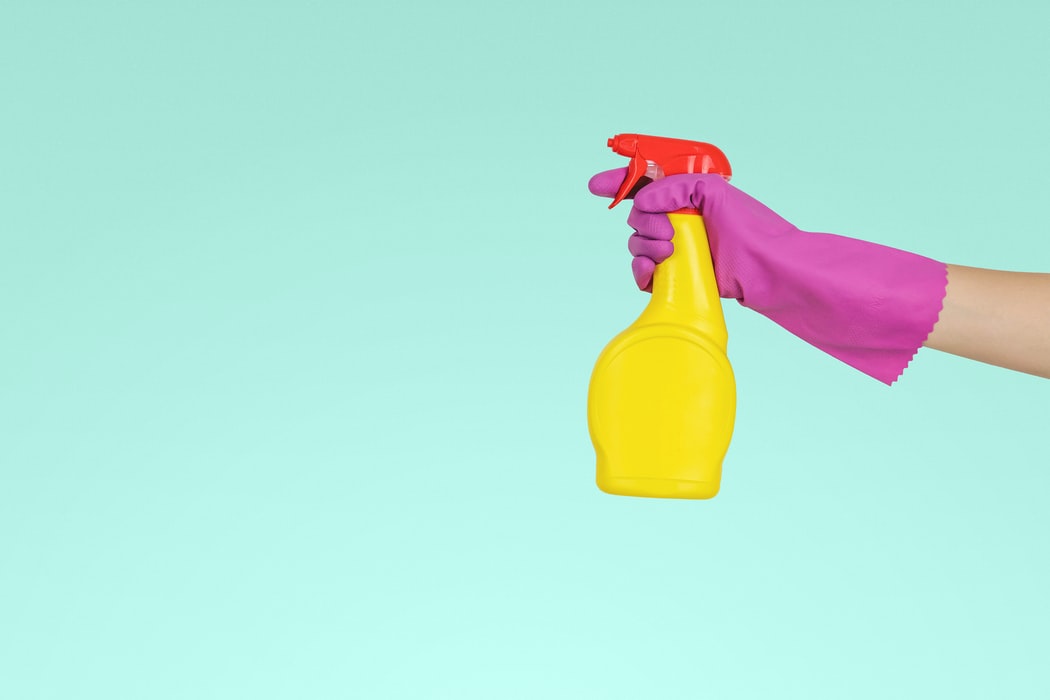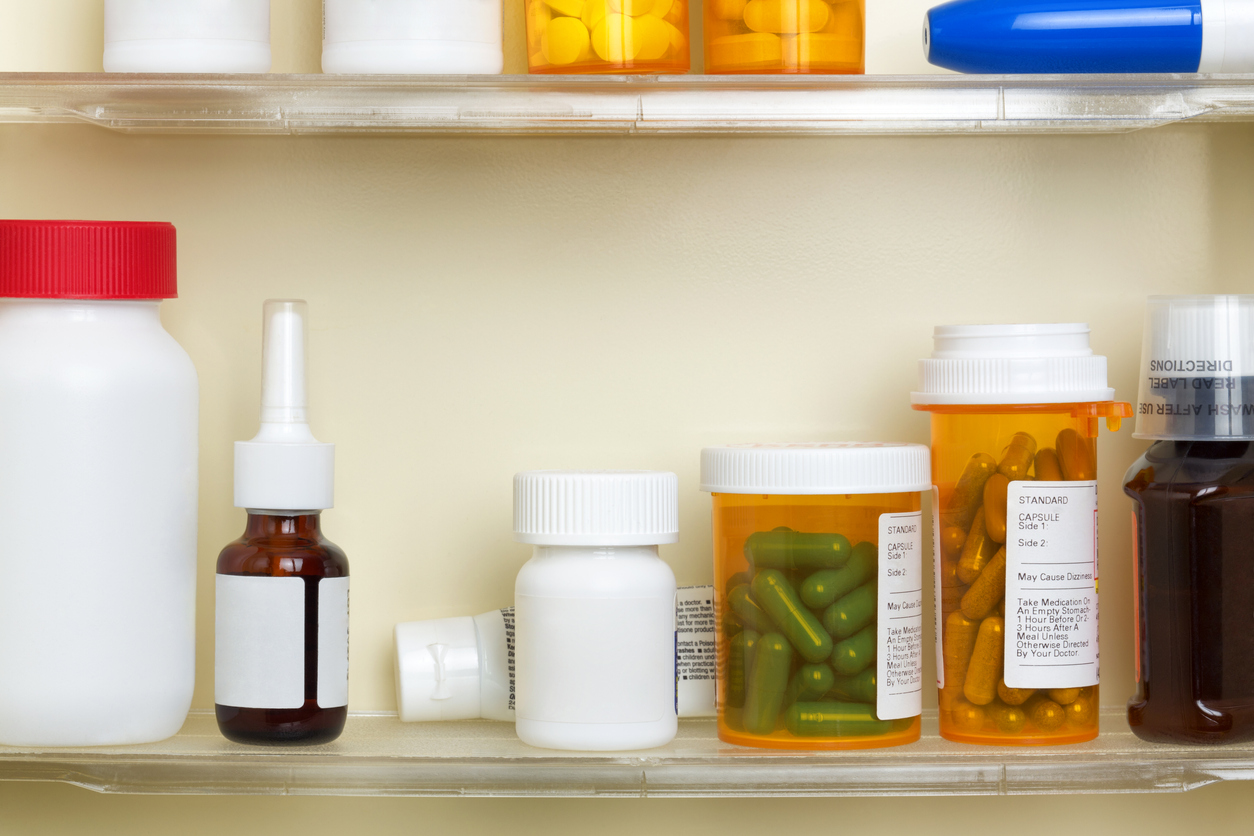More and more people are making the switch to eco-friendly products for cleaning their home. In 2019 alone, the green cleaning market amassed $3.9 billion dollars in sales, and a study done on ‘going green’ showed that 77% of people want to learn how to be more eco-friendly. We’ve created a guide on eco-friendly cleaning hacks to help you go into 2021 with healthier habits, you can apply them in your home or in your cleaning service, your customers will surely appreciate it.
What’s so bad about conventional household cleaners?
The trusted household cleaning products you grew up with may not be so trustworthy when it comes to what they may be doing to your and your family’s health.
Benefits of using eco-friendly and DIY cleaners
The most obvious benefit of using non-toxic cleaners is that they’re better for your health. But there are other benefits, too.
Better for animals. Eco-friendly cleaning products are generally cruelty-free and not tested on animals
Better for waterways. Cleaning chemicals that go down the drain end up in waterways and poison the water and wildlife.
Lower your carbon footprint. Natural products generally have recyclable, compostable, or biodegradable packaging to reduce landfill waste. If you use DIY cleaners, there’s no extra packaging waste at all. Their compounds are also sustainable, helping us lead a more sustainable life. Is a daily hack that promotes green living.
Make your house smell delightful. No chemical smells — just natural, delicious plant scents.
Budget-friendly. Another benefit of DIY eco-friendly cleaning products is that they’re budget-friendly, chemically household cleaning products are more expensive because they spend money on advertising and big marketing teams. From hydrogen peroxide hacks to vinegar, there are many natural, eco-friendly cleaning products that can do wonders in your home.
Choosing eco-friendly cleaning products
If you’d rather buy your cleaning products than make them, you’re in luck. Small, natural cleaner brands are popping up all over, offering non-toxic, biodegradable cleaners for every job. Even the big brands are getting on board and creating lines of non-toxic or less-toxic cleaning products. Many professional cleaning services are also opting to use eco-friendly products for the health of their employees as well as their customers.
Here’s how to choose the right ones:
Check the ingredients list. Before you toss that bottle of dish soap in your cart, check out the ingredients list. If you spot any of the terrifying ten, put it back on the shelf and continue your search.
Look for certifications. Certifications such as Fair Trade, Leaping Bunny, USDA Organic, EPA Safer Choice, and FSC are all signs the product you’re looking at is safe for your household.
Natural products can be better for pets as well
Remember that pets can be pretty sensitive to harmful chemicals; their noses, as well as their paws, are different from ours. Even if we can’t sense a smell, they can. Even essential oils can be too intense for their sensitive noses and be harmful instead of beneficial.
If you want to remove dog urine smell or cat spraying odors, it’s possible to do so while using eco-friendly products such as vinegar and baking soda.
Create a mix of one part water and one part vinegar to clean walls and floors. The vinegar smell can be strong, but it will evaporate within a few days; make sure to keep your pet away from the area you just cleaned.
Ingredients in DIY household cleaners

You probably have everything you need at hand to make your own highly effective, inexpensive, and non-toxic household cleaners. Store your homemade cleaners in tightly sealed glass or plastic bottles, and label them, because you WILL forget which is which.
Mild dish soap. Mild dish soap — especially natural, non-toxic varieties — is a versatile cleaner around the house, and when you add it to other natural ingredients, it can take care of some pretty tough cleaning jobs.
Vinegar. Vinegar is a great cleaner agent, it’s made from acetic acid and acts as a powerful natural cleaner that gets rid of grease, grime, dirt, and bacteria. Use whatever you’ve got in your cupboard — but white and distilled white vinegar work best, whether you’re cleaning your kitchen counter or your coin collection.
Baking soda. Once a prized cleaner by Ancient Egyptians, baking soda is actually a salt that can be used to naturally clean your home. Employ baking soda to absorb odors, combine it with vinegar to unclog drains, and because of its slightly abrasive nature, baking soda can be used to remove stubborn stains.
Lemons. Lemon, like vinegar, is a terrific cleaning agent. The acid in lemons is antibacterial and antiseptic, and it acts as a natural bleach. The citrusy smell of lemons is refreshing and invigorating. Oils in the rinds can also help to clean and shine.
Essential oils. Essential oils are all-natural and biodegradable, and many contain powerful antiseptic, antifungal, antibacterial, disinfecting, and antiviral properties that make them remarkably effective at household cleaning. The best essential oils for cleaning include lemon, peppermint, tea tree, lavender, and sweet orange.
70% to 90% Isopropyl (rubbing) alcohol. Rubbing alcohol is a disinfectant when it sits on a surface for at least 10 seconds. It evaporates quickly, can remove sticker residue, permanent marker stains, and more. Just don’t use it on marble!
Microfiber cloth. Microfiber cloths have millions of hook-shaped fibers per square inch. These fibers grab onto dirt, grease, and microbes, greatly reducing germs on a surface and cleaning far more effectively than sponges or cotton cloths.
DIY cleaner recipes — and where to use them
These highly effective, all-natural, homemade cleaners are inexpensive and easy to make, and they’ll clean pretty much every inch of your home with no dangerous synthetic ingredients.
In the kitchen

All-purpose cleaner
In a spray bottle, mix 1-½ cups water, ½ cup of vinegar, and 10 drops each of lavender, lemon, and grapefruit essential oils. Use this to clean just about anything from kitchen countertops, cupboard fronts, and appliances to sinks, tubs, and toilets.
Grease remover
In a spray bottle, combine a cup of distilled white vinegar, a couple of drops of mild dish detergent or pure castile soap, and a few drops of citrus essential oil. Shake well, and spray it on the greasy dishes, stovetop, microwave, or other surfaces, then wipe with a microfiber cloth.
For super-duper greasy messes, make a baking soda and water paste, slather it on, let it dry, then remove it with a damp microfiber cloth.
Stainless steel cleaner
For filthy, greasy stainless steel, dip a microfiber cloth in rubbing alcohol, and scrub it down in the direction of the grain. To make your stainless steel gleam, dip a microfiber cloth in a bit of olive oil, and wipe with the grain to remove fingerprints and watermarks and hide scratches.
Oven cleaner
Make a thick paste of baking soda, coarse salt, and vinegar. Add a few drops of mild dish soap. Slather the sides, floor, and roof oven with the paste, and let it sit overnight. Scrub it with a warm, damp sponge, and rinse. Give it a spray-down with straight white vinegar, and wipe one last time with a microfiber cloth.
You can find more recipes for natural over cleaners here.
Microwave cleaner
Grab a bowl and fill it with ¼ of white vinegar and a cup of tap water. Heat the liquid for five minutes in your microwave and allow it to cool slightly. Dip a microfiber cloth in the mixture to clean up stains.
Garbage disposal cleaner
General cleaning/maintenance. To keep your disposal from stinking in the first place, get into the habit of eating citrus fruits, and toss the peels into the disposal after. The rough peels and their essential oils will help loosen and remove stinky gunk from the blades and make it smell delightful.
Intensive cleaning. For more intense cleaning, pour a half-cup of baking soda into the disposal, followed by a half-cup of vinegar — pour slowly. Put the stopper over the drain hole, and let the concoction fizz for five minutes. Remove the stopper, and run the disposal with the hot water running.
For more convenient disposal cleaning, try making these garbage disposal bombs, and store them under your sink in a big glass jar.
Whole house
Disinfectant
Put 70% isopropyl alcohol, aka rubbing alcohol, undiluted into a spray bottle. Spray it anywhere that needs disinfecting — let it sit on the surface for 10 minutes, and wipe away with a microfiber cloth. Rubbing alcohol kills bacteria and viruses, including the coronavirus.
Carpet and upholstery cleaner
General cleaning: To draw out odors and moisture, sprinkle your carpet or rug liberally with baking soda, let it sit for a few hours — ideally overnight. Vacuum thoroughly.
Light stains. Mix a teaspoon of mild, clear dish soap with one cup of warm water in a bowl. If the stain is wet, dab it dry, then soak it in a small amount of the soap mixture. Let it sit for 10 minutes, then dab and repeat until the stain is gone.
Heavy stains (wine, dog poo). For more stubborn stains, try using straight baking soda followed by a mixture of two tablespoons of hydrogen peroxide and one tablespoon of dish soap. If the stain is wet, blot it until it’s as dry as possible. Sprinkle the baking soda onto the stain, and let it sit for 10 minutes, then add the hydrogen peroxide mixture to the stain. Let the whole concoction sit on the stain for five minutes, then blot dry. Repeat as necessary until the stain has lifted.
Hardwood floor cleaner
Many conventional hardwood floor cleaners contain waxes, silicones, and oils that are terrible for your wood floors, leaving behind dulling residues and making them difficult to re-coat down the road. The best way to clean your wood floors is with a damp microfiber mop. The microfiber traps dirt and bacteria and leaves your floors shiny and clean. For really dirty wood floors, mix two tablespoons of mild dish soap in a gallon of warm water, and damp-mop with it.
Glass cleaner
The surprising key to streak-free glass cleaner is cornstarch. Whisk four tablespoons of cornstarch into a bowl containing a cup of hot water and a cup of rubbing alcohol. Pour into a spray bottle, and use it on mirrors, windows, glass stovetops, and other glass items. For best results, wipe the glass with a microfiber cloth.
Air freshener
Skip the poisonous plug-ins and freshen your air naturally with an essential oil diffuser, or make your own room spray with your favorite essential oils. Simply fill a spray bottle with equal parts distilled water and witch hazel. Add 20 to 30 drops of your favorite essential oils and shake to combine. Spritz around the room and add more essential oils if you want a stronger spray.
Bathroom & laundry
Toilet cleaner
Use the DIY all-purpose cleaner for the toilet, or mix a cup of baking soda with 15 drops each of tea tree oil and lemon or orange essential oil. Sprinkle in the bowl, let it sit for a half-hour, then scrub as usual.
Mold remover
Vinegar kills 82 percent of mold species, so it’s a great addition to your collection of natural cleaners. In the bathroom, basement, or wherever else you find mold, spray the offender with full-strength distilled vinegar. Let it sit for an hour, then wipe. To prevent mold growth, spray the area with vinegar every few days.
Calcium buildup remover
Vinegar comes to the rescue again, this time helping you get rid of the mineral buildup on your showerhead and other water fixtures. If you can remove the fixture, submerge it in a bowl or bucket of white vinegar. If you can’t remove it, fill a plastic bag with vinegar and immerse your showerhead in the bag. Use string to secure the bag to the showerhead.
Laundry detergent
Making your own effective laundry detergent would be far more work and expense than it’s worth. Instead, invest in a high quality, all-natural detergent that’s powered by enzymes and non-toxic to the environment.
Dryer sheets
Instead of using conventional dryer sheets that are packed with chemicals and synthetic fragrances, get yourself some wool dryer balls, and toss three or four in the dryer with your clothes. They’ll help reduce wrinkles and static, and they’ll also help separate your clothes as they tumble so they dry faster — meaning less energy use. If you like scented laundry, just add drops of essential oils to the dryer balls, which will soak them up and distribute them to your clothes.
Keeping your home clean doesn’t mean you have to use harmful chemicals. It’s easier than ever to find simple and healthy cleaning hacks to get your home spick and span on a budget with eco-friendly products.




